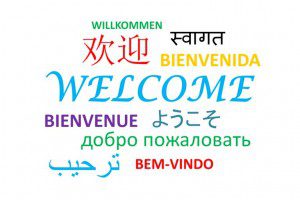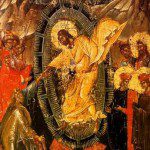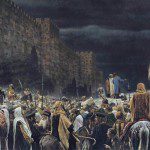
A Way of Knowing
I’ve been reading an engaging book on “Faith, Hospitality, and Foreign Language Teaching” by David Smith and Barbara Carvill called The Gift of the Stranger. Among the authors’ many inspiring ways of linking language learning to the ethic of hospitality was this: that hospitality is a way of knowing. Not just a virtue, but an avenue of understanding, instruction, insight, awareness. It is only when we welcome the stranger, opening our homes, minds, provisions, time, hearts and imaginations to someone outside our intimate circles—or outside our borders–that we begin to learn about ourselves and others that might not be available by any other means. When we allow them to become, so to speak, significant others.
To signify means to mean, to be of importance or sometimes to read signs. When we encounter people we have not known we begin a subtle, gradual process of learning to read them—their words, their behaviors, their expressions, what they laugh at, what they find disturbing or puzzling, what enables them to be at ease with us. And they embark on a similar learning curve.
Learning a foreign language, even enough to exchange commonplace courtesies, Smith and Carvill insist, even in an academic setting, is an exercise in hospitality. It’s also an important exercise of humility. I don’t know anyone who has ventured out into foreign territory equipped with a few years of classroom grammar and scripted dialogues who hasn’t said something completely inappropriate or out of context. When they’re lucky, their gaffes just provide a moment of amusement. When they’re not so lucky, they can get themselves into deep trouble. A little language may be a dangerous thing.
Still, even a little language can be a way that leads to a wider world. When my husband, having returned to seminary for a mid-life career change, found himself struggling with ancient Greek and Hebrew, he took up the practice of simply writing out a line of Greek and a line of Hebrew each day. Writing by hand, inscribing the beautiful letters, slowing down over the strokes, he developed an appreciation for the beauty, the economy, the ambiguities, and the strangeness encoded in those antique alphabets, and let a little of the ancient world infuse his own. Often in his sermons he lifted up a single word or phrase, considering what translators had made of it, calling our attention to the alien culture from which it came in ways that kept us aware of how complexly we are related to the long story we inhabit.
The wide view of hospitality that extends it to intellectual and spiritual ways of letting others in, entertaining their ideas and considering their sensibilities, seems to me a valuable and pertinent practice for the historical moment we live in, as refugees risk their lives to cross leave places where their lives are at risk. We will have occasion to greet them. Perhaps to comfort them. Perhaps, at times, to speak a healing word.
















